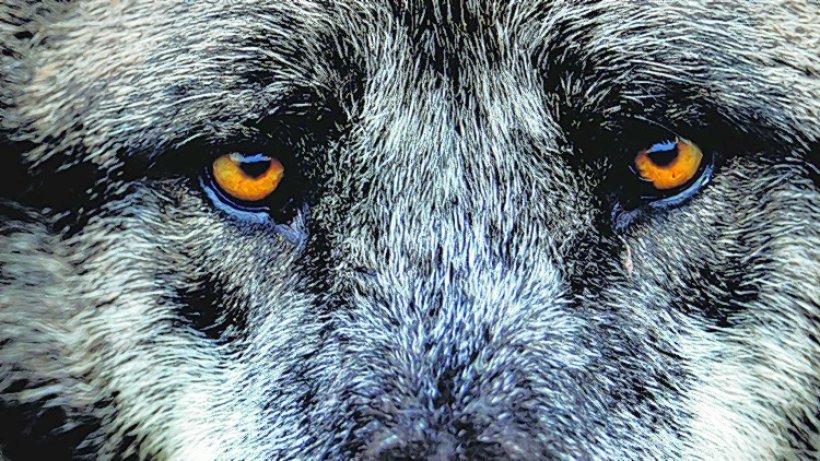The Wolf dissolves still ancient fears in humans from
Will the Lower Saxony Problem Wolf get a reprieve?
The expert members of the Wolf Working Group in Hannover recommended this weekend to attempt an aversive, one time measure of control over the wolf. However,if this does not work, the Green Environment Minister, Stefan Wenzel, faces growing public pressure from people in Lower Saxony to shoot a wolf in Germany for the first
time.
Yet on Thursday, Minister Wenzel announced in Parliament that in view of these new
incidents, we will prepare for a killing: "I have everything
necessary prepared for the taking in the wild." The concept of "taking in the wild" is the bureaucratic euphemism for a killing. The reason for the looming change by the minister is an incident that occurred early last week in Breloh, Munster. A wolf had followed a pedestrian who had a 14 week old baby in a stroller. Also, in early January, the same wolf bit a dog that was accompanying a pedestrian in Celle.
In April 2011, the enthusiasm was equally felt, as the first wolf in 100 years had chosen a military training area in the Lüneburg
Heath, in Lower Saxony as a home.
Almost five years after the return of wolves, political parties are divided. With its one-vote majority in parliament, SPD
and Greens parties are desperately trying to eliminate the 70 wolves in the area. CDU and FDP warn of dangers, not only for sheep, but also for people and call for the killing.
It is clear that the spread of the Wolf will continue. But opinions differ widely, as to how to deal with the wolves.
SPD and the Greens advocate prudence and sound judgment; the opposition
parties are against the hunt. The latter suggest calm policy and, ultimately,
to only hunt wolves known for behavioral difficulties.
Now, the desire of the Wolf Working Group, speaking to the hunters,
foresters, conservationists and livestock farmers, suggest conditioning measures
be undertaken, such as the use of rubber bullets. The stated goal is to inflict pain to the animal in the hope that the wolf reacts by keeping its distance from people.
This dispute is not about citizens' fears, but about money and principles.
The competent Ministry of Environment in Hannover, under department
chief Wenzel, has always supported that sheep farmers are compensated
promptly and fairly when their livestock are killed by wolves. Environmental Secretary, Almut Kottwitz, has publicly
acknowledged that there is a demand for quick evaluation of DNA
analysis for payment of compensation and financing of fences with which
the sheep are to be protected. CDU and FDP, meanwhile, take the wolf to the hunting law.
But Nabu Niedersachsen rejects the strict demands of the
state government for compensation and wants more protection measures
for the herds:
"This is crucial for people in Lower Saxony.
It is also clear that the current law allows the killing in problem
cases, laboriously covered by the concept of "taking in the wild."
When the wolf returned to Saxony, everyone involved believed what the experts assured--that these animals are
not a real problem because of their great shyness. But now there are several cases where wolves trotted curiously through housing estates. Last week a video was shot where a wolf napped near a fence around a reception center for refugees.
In Parliament, the Ministry of Environment had little more
to offer than he did a week ago, which was the advice to throw rocks, to shout, or to use pepper spray as a deterrent. Particularly embarrassing for the Ministry, there were photos that showed that they were a broom made for an animal with a collar. However, the relevant authority had to admit that no wolves have been reported since the week of December 20, 2015.
The wolf from Goldenstedt, which was known for its emergence in the
vicinity of a forest near a kindergarten, is suspected to have
indiscriminately killed sheep.
More than ten sheep in one night have died. This evidence suggest that this problem wolf regularly returns for such fare. The oppositin suspects that the wolf is responsible for the deaths of 80 sheep. At the kindergarten near the forest, worried parents have tried to keep the wolf away with fluttering ribbons.
"The potential risk and the concerns of those affected must be taken
seriously," says Jörn Ehlers, Rotenburger chairman of
agriculture. There are farmers who warn of long term consequences of the rapid spread of the predator. The affected farmers say that 1.40 meter high fences do not deter problem wolves from getting to their sheep. Wildlife that increasingly shed their fear of people will continually come nearer to their farms.



No comments:
Post a Comment